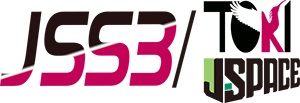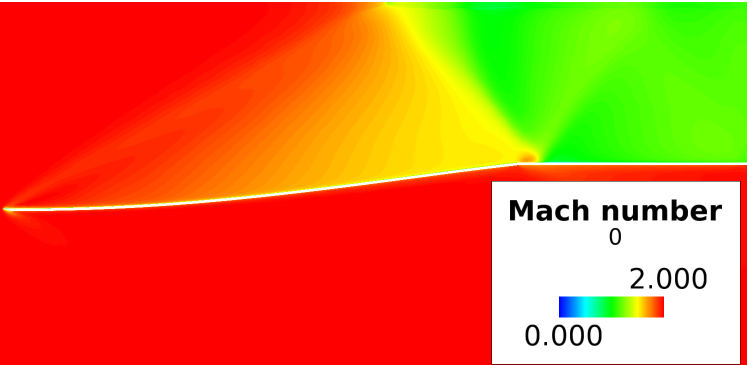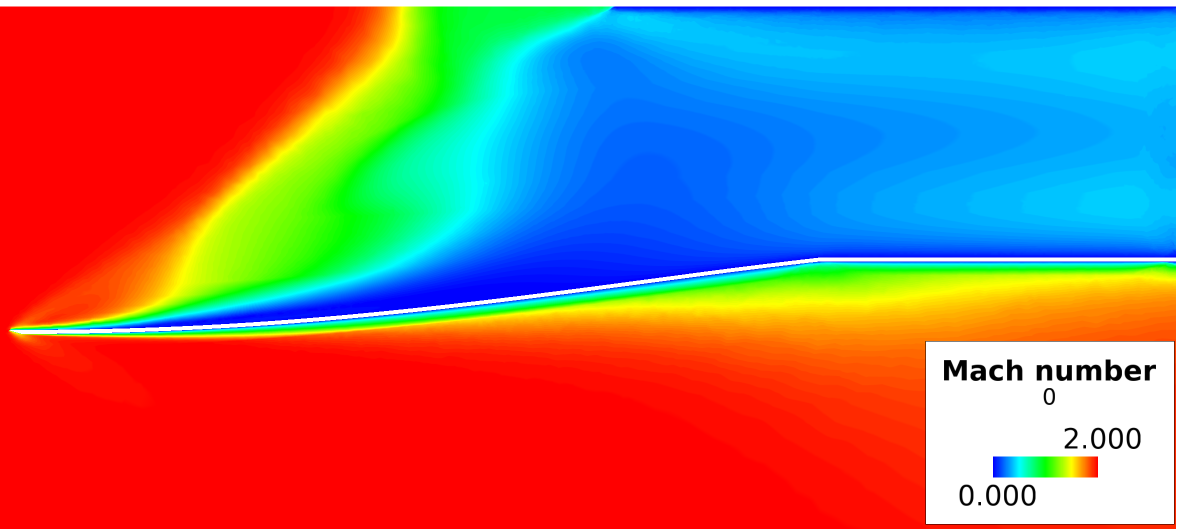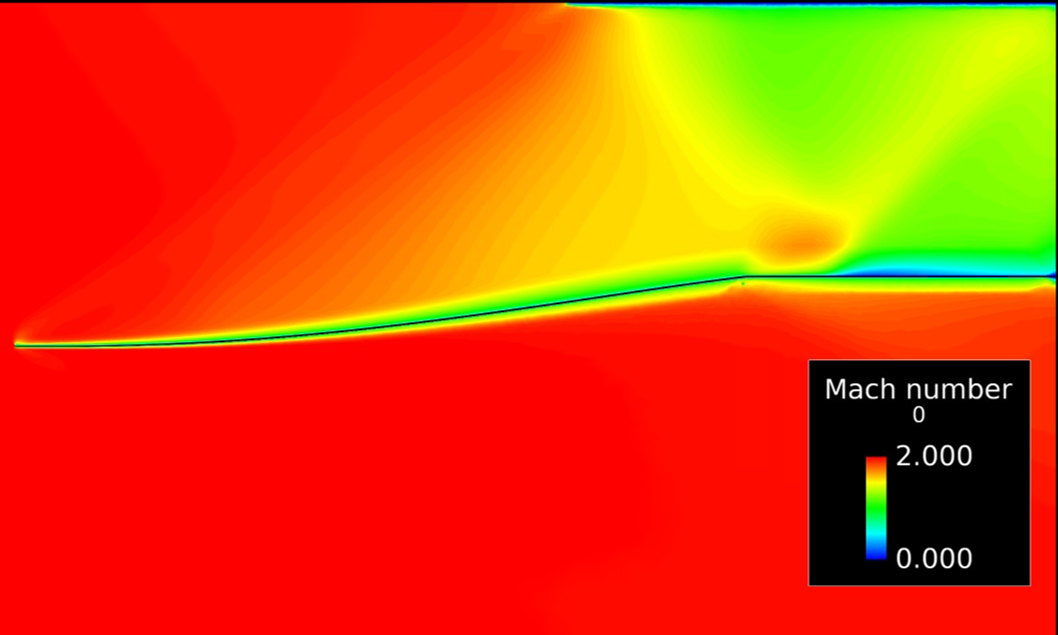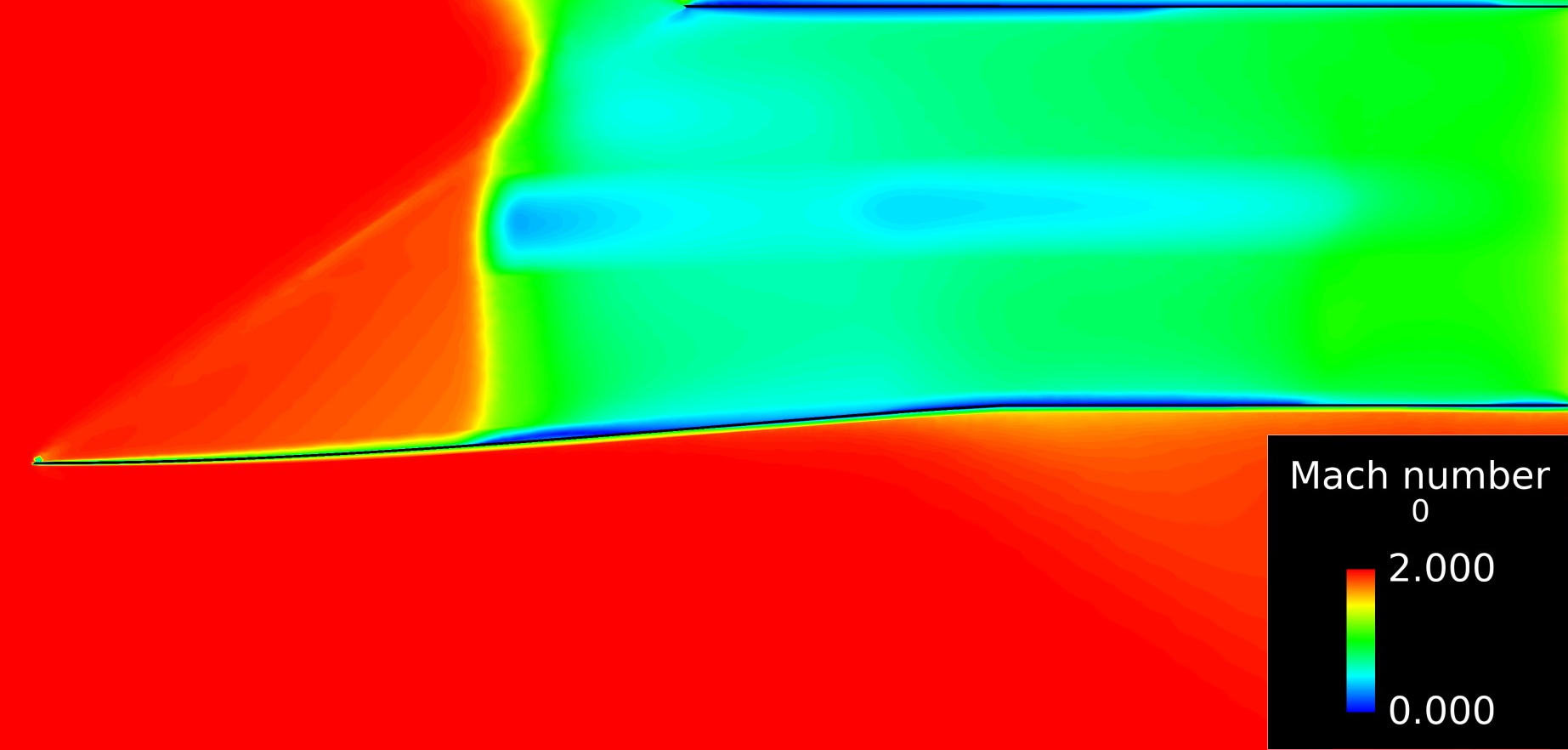Study on spacecraft dynamics
JAXA Supercomputer System Annual Report February 2022-January 2023
Report Number: R22ECWU24
Subject Category: Cooperative Graduate School System
- Responsible Representative: Shujiro Sawai, Professor, Department of Space Flight Systems, Institute of Space and Astronautical Science
- Contact Information: Yusuke Maru(maru.yusuke@jaxa.jp)
- Members: Kazuma Matsumoto, Haruaki Seta, Maiko Yamakawa
Abstract
Dynamics of space craft and space transportation system is analyzed in this activity. Especially, the purpose of this study is to design an intake for an ATRIUM engine for a reusable sounding rocket incorporating an airbreathing propulsion system.
Reference URL
N/A
Reasons and benefits of using JAXA Supercomputer System
The use of JSS3 enables very high-speed analysis when evaluating the characteristics of the designed intake by CFD, so that performance evaluation under a variety of flight conditions can be performed.
Achievements of the Year
JAXA’s Institute of Space and Astronautical Science (ISAS) is currently conducting research and development of a new observation rocket equipped with an air turbo rocket composite ATRIUM engine. The intake has been designed to fit the observation rocket using the Busemann intake with a streamline tracing technique. However, the previous design produced an ideal flow field for the Busemann intake and high intake performance in a non-viscous analysis ( Fig. 1), but in a viscous analysis, shock waves were formed in front of the intake and its performance was degraded ( Fig. 2). This study aims to improve intake performance by using two methods to reduce the CR (aperture ratio).
In the first method, the intake is enlarged in the radial direction by a uniform distance from the inlet to the outlet. The analytical results ( Fig. 3) show that the flow field is close to the ideal Busemann flow field as shown in Fig. 1. Compared to before the enlargement, the performance has improved from 0.176 to 0.888 for MCR ( mass capture rate ), from 0.358 to 0.870 for TPR ( total pressure recovery rate ), and from 0.466 to 1.18 for the outlet mean Mach number.
The second method was designed with the original design Mach number of 2.0, which was lowered to 1.7. The analytical results (Fig. 4) show isentropic compression up to the first half of the intake, but shock waves are generated in the middle of the intake. The performance is improved over the original geometry with an MCR of 0.571, TPR of 0.467, and exit mean Mach number of 0.960, but the effect is less effective than the method of expanding.
Publications
– Oral Presentations
1) Matsumoto, K., Seta, H., Watanabe, D., Maru, Y., and Sato, T.: Study of an Air Inlet for New Sounding Rocket with ATRIUM Engine, Space Transportation Symposium FY2022, Sagamihara, Japan, STCP-2022-014, 2023 (in Japanese).
2) Maru, Y., Matsumoto, K., Watanabe, D., Seta, H., and Sato, T.: Flow and Performance Characteristics of a Streamline-traced Air Inlet Designed at Mach 2 for the ATRIUM Engine, 11th Asian Joint Conference on Propulsion and Power, Kanazawa, Japan, AJCPP2023-072, 2023 (scheduled).
– Poster Presentations
Maru, Y., Sato, T., Manako, H., Oyama, A., Fukiba, K., Kinefuchi, K., Minato, R., Tokudome, S., Sakamoto, Y., Kobayashi, H., Seta, H., Matsumoto, K., Watanabe, D., Shishido, T., Sawada, K., Mori, H., Tachibana, S., Miki, Y., et al.: Research Status on Aerodynamic Components of ATRIUM Engine, 23rd Space Science Symposium, online, P-117, 2023 (in Japanese).
Usage of JSS
Computational Information
- Process Parallelization Methods: MPI
- Thread Parallelization Methods: OpenMP
- Number of Processes: 256
- Elapsed Time per Case: 8.3 Hour(s)
JSS3 Resources Used
Fraction of Usage in Total Resources*1(%): 0.07
Details
Please refer to System Configuration of JSS3 for the system configuration and major specifications of JSS3.
| System Name | CPU Resources Used (Core x Hours) |
Fraction of Usage*2(%) |
|---|---|---|
| TOKI-SORA | 1392541.23 | 0.06 |
| TOKI-ST | 94074.97 | 0.09 |
| TOKI-GP | 0.00 | 0.00 |
| TOKI-XM | 0.00 | 0.00 |
| TOKI-LM | 18042.63 | 1.21 |
| TOKI-TST | 0.00 | 0.00 |
| TOKI-TGP | 0.00 | 0.00 |
| TOKI-TLM | 0.00 | 0.00 |
| File System Name | Storage Assigned (GiB) |
Fraction of Usage*2(%) |
|---|---|---|
| /home | 1200.00 | 1.09 |
| /data and /data2 | 41960.00 | 0.32 |
| /ssd | 1200.00 | 0.17 |
| Archiver Name | Storage Used (TiB) |
Fraction of Usage*2(%) |
|---|---|---|
| J-SPACE | 0.00 | 0.00 |
*1: Fraction of Usage in Total Resources: Weighted average of three resource types (Computing, File System, and Archiver).
*2: Fraction of Usage:Percentage of usage relative to each resource used in one year.
ISV Software Licenses Used
| ISV Software Licenses Used (Hours) |
Fraction of Usage*2(%) | |
|---|---|---|
| ISV Software Licenses (Total) |
881.50 | 0.61 |
*2: Fraction of Usage:Percentage of usage relative to each resource used in one year.
JAXA Supercomputer System Annual Report February 2022-January 2023

